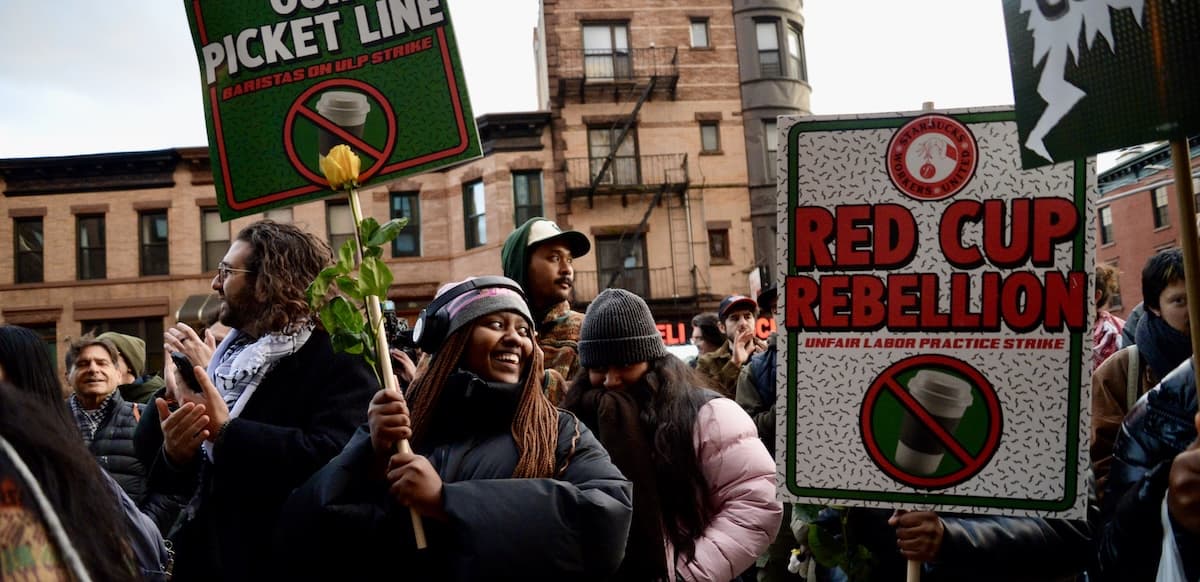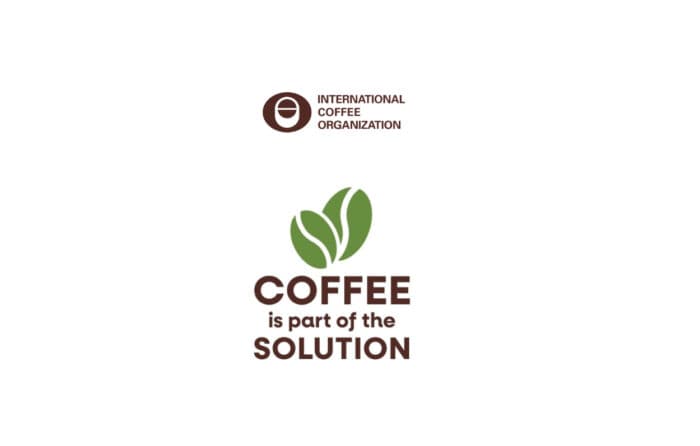Dubai – Qahwa World
Starbucks workers across the United States staged a coordinated strike on Thursday, marking what union leaders say could become the largest and longest unfair labor practice strike in the company’s history. The action began at 65 stores in 40 cities and has the potential to expand to as many as 550 locations in the coming weeks. The union, Starbucks Workers United, represents a growing segment of baristas and store employees pushing for better pay, hours, and protections against what they describe as persistent unfair labor practices.
Chanting slogans such as “What’s outrageous? Starbucks wages! What’s appalling? Starbucks stalling! What’s disgusting? Union busting!”, the striking workers highlighted longstanding grievances with corporate policies. Many of the early pickets coincided with Starbucks’ annual promotional “Red Cup Day,” a high-traffic event notorious for long lines and overworked staff. Sabina Aguirre, a barista from Columbus, Ohio, told Labor Notes that “Red Cup Day is one of the busiest days for Starbucks all year. It’s so well known to be a day of overwork and frustration on behalf of the employees.”
The strike is being supported by other unions as well. At a Brooklyn, New York location, striking baristas were joined by members of Laborers Local 79, the Communications Workers, the United Federation of Teachers, and building workers from SEIU Local 32BJ. The coordinated solidarity reflects a broader push by labor organizations to strengthen collective action across sectors.
Although Starbucks Workers United has successfully organized 650 stores, the company operates roughly 10,000 locations in the United States. To amplify pressure, the union is calling on the public to avoid all Starbucks stores, whether unionized or not, during the strike, and to communicate to the company that current labor conditions are unacceptable.
Negotiations between Starbucks and unionized workers began in February 2024. These discussions followed years of alleged unfair labor practices that started in 2021, when the first Buffalo stores unionized under Starbucks Workers United, a division of Workers United/SEIU. Progress toward a formal contract initially seemed promising but stalled after the company appointed a new CEO, Brian Niccol, in September 2024.
Tyler Cochran, a barista in Manhattan, noted, “So much progress was made in early 2024, before Brian Niccol took over. We knew the economic portion of bargaining would be the most challenging, but the timing coinciding with a new CEO really slowed things down.” Niccol, who previously worked at Chipotle, has a track record that includes closing the first store to seek union recognition at his former company, later settling for $240,000 with the National Labor Relations Board. Cochran highlighted the pay gap, noting that Niccol earns 666 times the salary of the average Starbucks barista.
Baristas say that while Starbucks has invested heavily in store refurbishments and promotional campaigns aimed at drawing customers back, staffing remains the most critical issue affecting operations and customer experience. “Lines are often out the door,” said Aguirre. “The main thing that would make stores more appealing to customers is adequate staffing. Nothing else can replace that.”
Equipment issues have further strained employees. Reports from striking workers include malfunctioning pitcher washers, leaking cold brew machines, and unrepaired refrigerators, sometimes forcing staff to store milk at room temperature. Beyond operational challenges, the union alleges that Starbucks continues to engage in unfair labor practices, including illegal monitoring and punitive actions against employees involved in union activities, along with unresolved workplace safety violations.
Compensation is another central grievance. Starbucks pays most baristas between $15 and $19 per hour, depending on location and local minimum wage laws. Aguirre, for example, earns $15.50 per hour in Columbus. Many employees struggle to qualify for health insurance or other benefits because they do not consistently receive enough hours. Even those who do qualify can lose coverage if their weekly hours fall below the minimum threshold over a six-month period.
Paradoxically, while baristas are seeking more hours and predictable scheduling, understaffing persists. “It feels like we’re constantly being asked to do more with less,” said Aguirre. “Management assumes that by placing time constraints on orders, problems will be solved automatically. In reality, staffing is the only solution to these persistent issues.”
The strike is being framed not only as a fight for fair wages and working conditions but also as a broader stand against corporate practices that baristas view as exploitative. “It’s about dignity at work,” Cochran emphasized. “We’re asking for the basic ability to support ourselves without relying on food stamps and without sacrificing health coverage or safe working conditions.”
As the strike unfolds, Starbucks Workers United continues to mobilize public support and encourage participation in picket lines. The union maintains that its goal is a comprehensive contract addressing pay, scheduling, equipment maintenance, and protections against unfair labor practices, aiming to set a precedent for the treatment of retail workers nationwide.
For updates and ways to support the picket lines, the union directs the public to nocontractnocoffee.org

